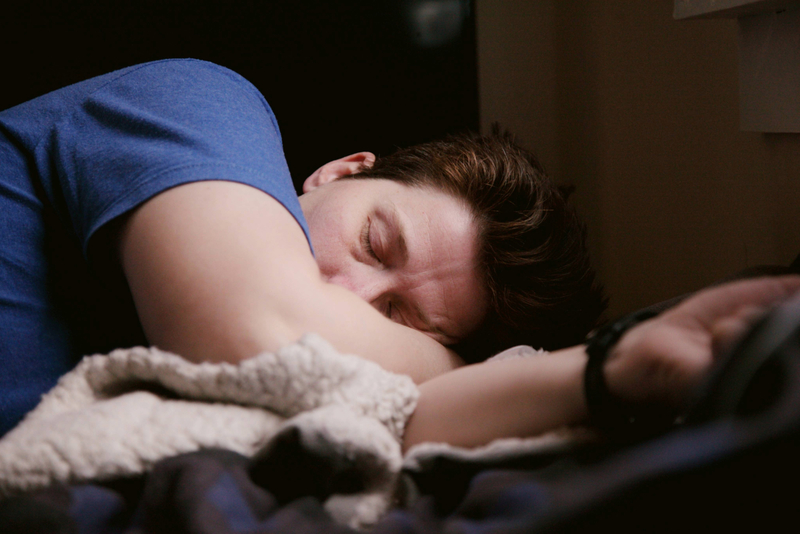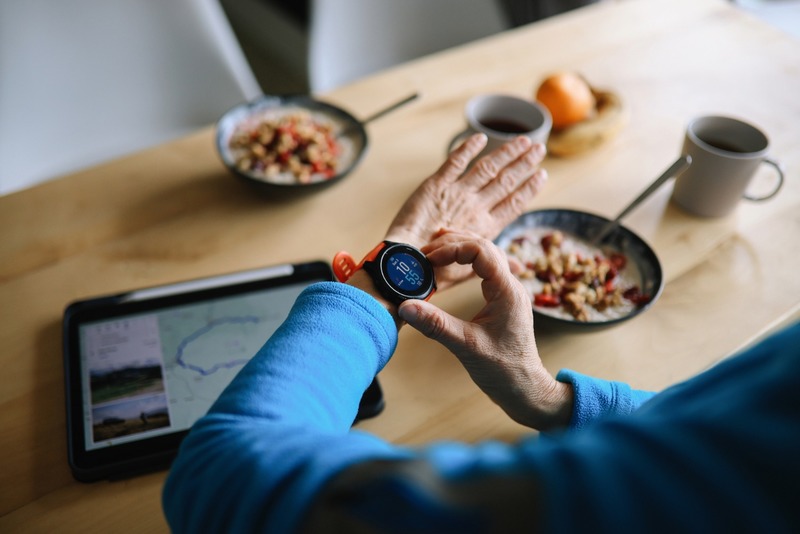News
Tips for a Good Night’s Sleep

Fall is a time to reset and realign. It's the season of all things “cozy.” Read on as we cozy up with two of our in-house sleep gurus to help you reset your sleep habits and realign with better health.
Dr. Eliza Klearman is a licensed naturopathic doctor and acupuncturist, who practices functional medicine at Vail Health Behavioral Health. She is passionate about empowering patients to achieve optimal health through holistic, natural and individualized care.
Dr. Melissa O’Meara is board certified in internal medicine and practices primary care at Colorado Mountain Medical. Her care philosophy is one of knowledge-sharing to empower patients to make the best decisions for their own health.
What interests you about sleep?
Dr. Klearman: I’m going to tell you a secret: I don’t sleep great. I know I am supposed to have all the health things figured out, but alas, I am merely human. I am not certain that I have ever been a great sleeper. I have always been a self-proclaimed “princess and the pea”—needing the perfect conditions to sleep through the night. But even in my pitch dark, cool bedroom, with my well-timed withdrawal from screens and dimmed evening lights, restful sleep eludes me. Sometimes I am a restless sleeper. I toss and turn and clench my jaw. Other times, I wake often and sometimes can’t get back to sleep, or I sleep too lightly. I can wake up too early, well before my alarm goes off, and seem ready to start my day in the wee hours before the sun is even thinking about rising.Dr. O’Meara: Sleep is a precious commodity. New research today highlights the value more than ever—the lack of sleep is implicated in mental health disease, heart disease, Alzheimer’s, and increased aging. As medicine pivots towards a focus on health and longevity, we realize the true value of sleep. This is one of those areas where functional medicine and traditional medicine dovetail really nicely—so much of sleep is influenced by things we can change like our habits and lifestyle, as much as it’s affected by things we can’t change, such as our neuroreceptors.
What kinds of strategies can help improve sleep?
Dr. Klearman:- Balancing light and darkness.
With sleep, darkness is your friend. Make your room dark. I mean really dark. If you can see your hand in front of your face, it is too light in your room. Cover your windows with black-out blinds, put a piece of electrical tape over all those ambient lights from your electronics, smoke detectors, and either flip your digital clock upside down or remove it from your room all together. More simply, you can wear an eye mask. Avoid screens, bright lights, and bright overhead lights at night. All bright lights can affect your circadian rhythm. As it gets dark outside, you should mimic the fading light indoors. This signals your brain that sleep is supposed to happen soon. Use only the amount of artificial light needed to safely navigate around your space. - Use light strategically.
Exposing your eyes to light during the day is just as important as exposing yourself to darkness at night when training your circadian rhythms. To signal your brain that it is daytime, go outside within 60 minutes of waking up in the morning, and again in the late afternoon. If you are up before the sun, you can turn on your overhead lights and go outside as soon as the sun comes up. Stay outside for 10-20 minutes if the sun is bright, and up to 60 minutes if there is significant cloud coverage. Don’t wear a hat or sunglasses, as this blocks the signals to the brain that it is daytime. - Listen to your body.
Go to bed when you are tired. There have been many times in my life when I am tired and could go to sleep but “push through” the fatigue so I can stay up later. But guess what? I NEVER sleep well when I do that. When you feel tired, go to sleep. Pushing past your natural sleepy time is one of the reasons for middle-of-the night wakings.
- Make a parking lot for your thoughts.
Keep a piece of paper and pen next to your bed. If your mind is racing in the middle of the night with all you need to accomplish on the following day, write down your to-dos. Transferring the information from your mind to paper can help alleviate the worry. - Don’t underestimate the power of exercise.
A tired body is an important component of good sleep. The time of day you exercise can also impact sleep. Exercising in the evenings can cause the release of adrenaline, which heightens alertness. If possible, moving exercise to the morning can help fatigue the body while not interrupting sleep. - Meditate.
Mediation is the practice of calming the mind to align with the body. There are many ways of practicing this. For some, this is a mantra that is repeated as the breath and the heart rate slow. For others, prayer is a form of meditation. Even the old standby of counting sheep is a form of meditation—the repetitive nature of the activity calms the mind and allows for a calm body.
What sorts of things should be avoided for quality sleep?
Dr. Klearman: Use substances judiciously. Caffeine affects the body more than you think. Avoid caffeine 8-10 hours before your bedtime. For some, 12-14 hours may work even better. Alcohol and sleep medications also disturb sleep. If you are not a good sleeper, avoid both.Dr. O’Meara: Alcohol can absolutely affect sleep. This is probably the number one thing to avoid if you are having trouble sleeping. THC (one of the active ingredients in marijuana) also has effects on the sleep cycle. Some sleep medications, particularly benzodiazepines, work on the brain using the same mechanisms as alcohol and can affect sleep too. A surprising number of other medications can have a negative effect on sleep: medications to treat ADHD, some antidepressants, steroids, testosterone, sometimes even antihistamines. Your primary care doctor can guide you on whether any of your medications are interrupting your sleep.
When should someone seek help with sleep?
Dr. Klearman: Whenever they want! There are so many supplements that can be helpful for sleep. Sleep is so personalized that it is always helpful to have a one-on-one appointment to review the individual’s specific sleep needs.Dr. O’Meara: Agreed! We’re always here to help.
More News
-
New!
More

First Chair to Last Call: What Does Alcohol Really Mean For Your Health?
In nearly every Colorado ski town, some iteration of the neon sign blares its play-hard-party-harder anthem. It’s a not-so-subtle nod to mountain party culture, a lifestyle that normalizes combining sports and outdoor adventures with heavy drinking and partying. In Eagle County, après culture, high-altitude living and outdoor performance have coexisted for as long as locals have been sliding on snow. But how much is too much at altitude? And what role do social support systems play in helping residents find balance?
-
New!
More

Counting More Than Steps: How Wearables Can Help (or Hinder) Your Health
From step counts to sleep stages, heart rate variability to blood sugar spikes, wearable devices are giving us a front-row seat to what’s happening inside our bodies. Strapped to wrists, slipped onto fingers or wrapped around our biceps, wearables like the Oura Ring or Whoop strap promise insight and advice in the quest for better health.
-
More

Cass Barham and Sarah Crabtree Honored As Recipients of Vail Health Elevate Award
Cass Barham and Sarah Crabtree, both lab techs at Vail Health Hospital, have been named recipients of the Vail Health Elevate Award. Vail Health created the Elevate Award in June 2022 to give patients and their families an opportunity to nominate and thank employees who have touched their lives in some way.
